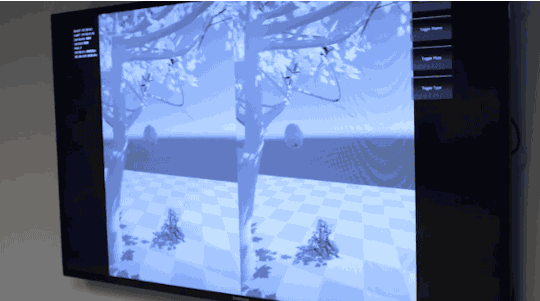The Educational Technology team recently got their hands on one of Google’s Project Tango VR development kits to explore the impact that this new technology might have on learning. We’re undertaking a series of pilot studies with our academic departments focussing on use of the technology to open up new avenues and concepts of space to staff and students. Virtual exhibitions, area mapping, and deeper exploration of learning concepts in practice based disciplines are all examples of how the technology might be used.

Image courtesy of The Verge
So what is it? Project Tango is a Google technology platform that uses computer vision to enable mobile devices, such as smartphones and tablets, to detect their position relative to the world around them without using GPS or other external signals. In short, it’s a mobile device with depth sensors and lasers.
There are various technologies; HoloLens, MagicLeap, iPad apps, that enable augmented and virtual reality where currently either price or functionality are a barrier to entry. This makes it harder to innovate within the University environment. The project tango development kit is built around the android operating system which opens it out to an existing community of developers and users and promotes new development and innovation.
The first pilot is taking place with the Institute of Photography and we expect this to run throughout 2016. We’ve starting blogging about it over at tango.falmouth.website, so look over there for updates as things progress. If you’re interested in finding out more or having a go with the device, contact the team.